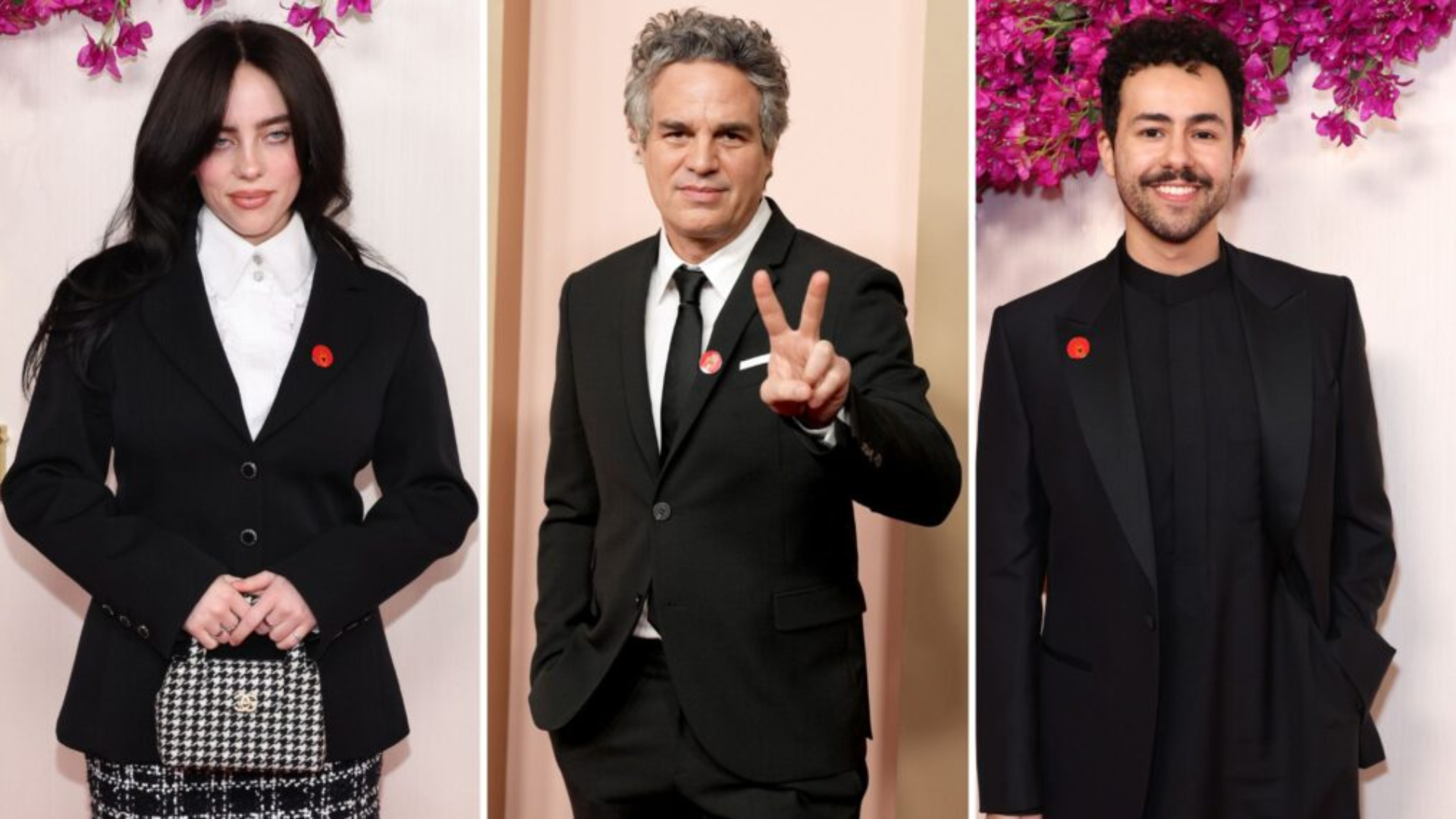The Oscars red carpet witnessed a poignant display of solidarity as prominent celebrities, including singer Billie Eilish and actor Mark Ruffalo, adorned striking red pins calling for a ceasefire in the Israel-Hamas war, according to a report by The New York Times.
This marked a significant shift from the prevailing trend of Hollywood stars avoiding discussions about the ongoing conflict during this awards season.
The red pins served as a symbol of support for Artists4Ceasefire, a coalition of celebrities and industry members who signed an open letter urging President Joe Biden to advocate for an immediate cessation of hostilities. Among the nearly 400 signatories were this year’s Oscar nominees Bradley Cooper and America Ferrera, as well as notable figures like Cate Blanchett, Drake, Ben Affleck, and Jennifer Lopez.
In a news release, Artists4Ceasefire stated that the pins symbolize collective support for an immediate and permanent ceasefire, the release of hostages, and urgent humanitarian aid delivery to civilians in Gaza. “Compassion must prevail,” the release emphasized.
Among the entertainers sporting the symbolic pins was comedian and actor Ramy Youssef, known for his role in the highly acclaimed film “Poor Things.” Youssef expressed a mix of hope and disappointment, stating, “There’s a part of you that hopes it doesn’t have to get to pins… There’s a part of us that hoped we would already be at a ceasefire, and we’re not.”
Youssef also reflected on the surprising lack of questions about the war during earlier red-carpet events this season. At the Golden Globe Awards in January, he redirected a question about a colleague’s ad into a call for a ceasefire, stressing that this is not about political strategy but a plea to stop the loss of innocent lives.
Other notable personalities joining this movement included director Ava DuVernay, actor Quannah ChasingHorse, and singer Billie Eilish, who incorporated the red accent into her attire for the event. Eilish’s brother and producer, Finneas, also showed support by wearing the pin.
While the Israel-Hamas conflict had limited presence on previous red carpets, the Oscars provided a platform to renew attention to the humanitarian crisis in the region.
The glossy red quarter-shaped pins, featuring an image of a hand surrounding a black heart, have intermittently appeared throughout the awards season. At the Grammy Awards, members of the indie rock trio boygenius attached these pins to their suits, and actors Tony Shalhoub and Ebon Moss-Bachrach showcased them at the Screen Actors Guild Awards.
Mark Ruffalo, nominated for Best Supporting Actor for his role in “Poor Things,” proudly displayed an Artists4Ceasefire pin at the Directors Guild of America Awards in February, emphasizing the need to give peace a chance. “We’re not going to bomb our way to peace,” Ruffalo asserted.
The Israel-Hamas conflict has resulted in a significant loss of life, with over 30,000 people reported killed in Gaza, according to Gazan officials, and around 1,200 casualties in Israel from Hamas attacks.
Red carpets at award shows have historically provided opportunities for stars to raise awareness about various issues. In 2023, blue ribbons expressed support for refugees at the Oscars, while in 2018, women wore black at the Golden Globes in solidarity with victims of sexual harassment. Natalie Portman, in 2020, wore a cape embroidered with the names of female directors to highlight gender disparities in the industry.
While Hollywood stars increasingly speak out on political, social, and humanitarian issues on award show stages, discussions surrounding the war in the Middle East have been relatively subdued. However, the Grammy Awards saw a slight shift last month when Annie Lennox called for a ceasefire during her musical tribute to singer Sinead O’Connor.
Amid concerns of possible protests related to the Israel-Hamas conflict, the Los Angeles Police Department increased security around the Dolby Theater, the venue for the Oscars.
Ramy Youssef emphasized the unique role of artists in engaging viewers with humanitarian issues, stating, “There’s that term ‘talking heads’ — I think artists are talking hearts.” He added, “We’re appealing on an emotional level.”























